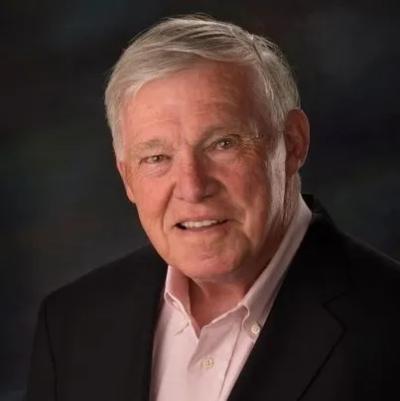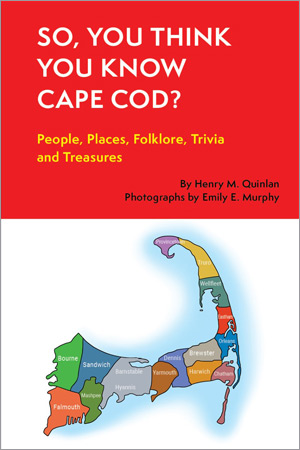A storied life
When Boston College graduate Henry Quinlan turned 80, he and his granddaughter decided to mark the occasion by jumping out of a plane. Skydiving is just one of the adventures Quinlan has embraced during his storied life, which includes helping to oversee the installation of the Make Way for Ducklings statues in Moscow and publishing a biography of Boston Celtics great K.C. Jones.
Quinlan, who grew up in Brighton, graduated from BC in 1961 with a degree in economics. After graduating law school, he joined his family’s publishing business, which was initially focused on legal newsletters. He went on to found Quinlan Press and have a 40+ year career as a publisher.
He published biographies on Jones, NASA astronaut Wally Schirra, and Babe Ruth’s daughter, Dorothy, among others.

Henry Quinlan, BC Class of 1961
“[K.C.] Jones was a wonderful man and told me some great stories," said Quinlan. "One of the stories he told me that was never public was about the biggest compliment he ever received. It was about his singing prowess from Frank Sinatra. When Jones would go on the road, he would go into piano bars and sing. And one night unbeknownst to him, someone brought Frank Sinatra to hear him. Afterwards, Frank Sinatra called him over to his table and he said, ‘K.C., you've got great pipes.’ Jones told me, ‘That was the best compliment I ever received.’ And this from a guy who won 12 NBA championships!”
In the 1980s, Quinlan was part of a publishing venture that included publishing the first telephone book in Moscow since 1936. He befriended Soviet diplomat Vitaly Churkin who was going to collaborate with him on a book about Washington and Moscow. The book never happened, but the friendship with Churkin—who served as Russian Ambassador to the United Nations prior to his death in 2017—endured for more than three decades. Due to his Moscow connections, Quinlan was asked by President George H.W. Bush to organize the publishing of the children's book, Make Way for Ducklings in Russia in 1991 and the erection of the Make Way for Ducklings statues in Moscow. The book and the statues were gifts to the people of Moscow from President Bush and First Lady Barbara Bush as part of the 1991 meeting between Bush and then Soviet Union President Mikhail Gorbachev.
“It was really an extraordinary experience,” recalled Quinlan, who visited the White House for dinners and receptions about a half dozen times. “President Bush was very nice. He was a very generous man with his time and thoughts.”

Quinlan and his granddaughters collaborated on several books.
More recently, Quinlan has collaborated with his granddaughters on books about places in Massachusetts. After relocating from New York City back to his home state, Quinlan wrote So, You Think You Know the South Coast? His granddaughter and skydiving partner Caroline Murphy provided the photographs. Quinlan and another granddaughter, Emily Murphy, have written Secret, Hidden & Forgotten Cape Cod. Emily Murphy also provided photos for their other joint book, So You Think You Know Cape Cod? Books on Boston and the South Shore are forthcoming.
Since he’s been retired, Quinlan has worked with seniors to help them write and publish their memoirs.
He worked on a book with John Cullinane, who founded one of the first successful software companies in the United States. “It was wonderful to work with him,” said Quinlan. “He had great stories, one of which was that he and Steve Jobs did a joint venture that failed utterly. It goes to show that not everyone has great success all the time.”
Quinlan is quick to point out that biographies and memoirs are not only for public figures. “All lives are really pretty interesting.” His rule of thumb is to be positive and do not use a memoir “to settle scores.”
In addition to helping seniors write their memoirs, Quinlan gives talks at senior centers on various topics. He estimates he has given more than 300 talks. His most popular one is called “Happiness for Seniors.”
“When you retire, you have to leave behind what you were, that's ‘used to be,’” he said. “You've got to forge your new life. And some men in particular have a very difficult time in changing their identity.
“I try to teach seniors that you have to find something to that engages you and find a purpose for your life that's outside of yourself. If you're only seeking happiness, you're on a never-ending treadmill for what is a temporary emotion. But when it is coupled with an objective outside of yourself, that will bring meaning and purpose to your life and a certain contentment. It is best to do something that is good for you, but also benefits others.”
